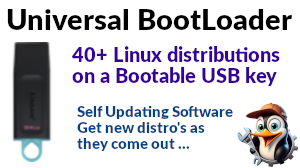What is LINUX and why do you love it so much?
Technical explanations aside, it’s a (free) alternative to commercial products such as Microsoft Windows and Apple’s MacOS. We love it because it provides freedom and implicitly, freedom of choice. You choose what you run it on, how many copies you run and what you do with it. There’s nobody in the background waiting to try to extract a fee from you depending on what you do. For the technically inclined, all the source code is available to everyone, so anyone can report a bug, make a suggestion for a new feature, or even modify it themselves and make it available to others.
Can anybody use Linux (for free)?
Yes. It could be considered functionally equivalent to popular alternatives provided by companies such as Microsoft and Apple. Depending on the particular flavour of Linux you choose, it should support all the features you might expect from a desktop PC including accessibility features such as high contrast displays and screen readers.
Why is it free, how can it be any good if it’s free?
It’s free because the people who originally produced the software, and those who now continue to maintain it, believe that computer software should be freely available to everyone. That’s not to say that there are no commercial possibilities with Linux, just that there should be a level playing field for all in terms of getting started. So there really is no catch. Moreover, many would argue that Linux is now much better than the commercial alternatives, a claim reinforced by the commercial alternatives (in many cases) now publishing their own version of Linux! If you look at the software industry and the Internet as a whole, it’s all built on Open Source (free) software. The fact you’re reading this means the free “model” works!
Will Linux run on my Computer?
Generally speaking the answer is “yes”, the only caveat being (in some cases) “how hard has my vendor tried to stop me from running Linux on my computer?”. If you have a ‘standard’ PC or a Raspberry Pi, you should have no problems running Linux. If you have Apple hardware then the answer is often still yes, although it becomes a little more of a technical challenge to get started.
Where can I get Linux?
You can download Linux in the form of a “Linux Distribution” from the Internet, typically for Free. You should end up with an “image file” which can be written either to a DVD or USB key, which you can then use to boot your computer and from there install Linux. Distributions come with online documentation describing in detail the process, and generally provide online support in the form of discussion forums. Alternatively you can purchase a USB key with Linux pre-installed on it (see “Linux on a USB Key” above).
I’m used to Windows or MacOS, how long will it take me to learn LINUX?
Well, it depends on the extent to which you want to learn. To become sufficiently proficient to use a web browser, email, word processors and spreadsheets – maybe only a matter of minutes. It’s all Windows, mice and menus, much like what you’re used to. If you want to install LINUX onto your computer, it maybe only actually takes 5-15 minutes, so it depends to an extent on the instructions you get and how well you follow them. If you want to become a LINUX expert, that’s always going to be an ongoing project.
What about a computer with Linux already on it?
As Linux has always been free for those with an interest and a little technical ability, then incentive to produce Linux computers has always been limited. However, a number of companies are trying to change that to make it easier for the non-technical. (see “The Year of the Linux Desktop” below) If you would like more details, please visit our Forums and ask away!

1 post - 1 participant






